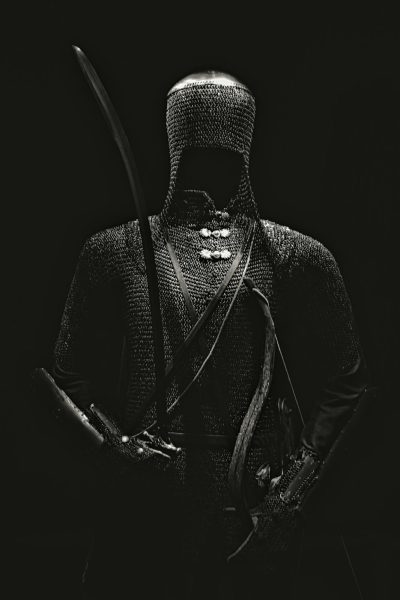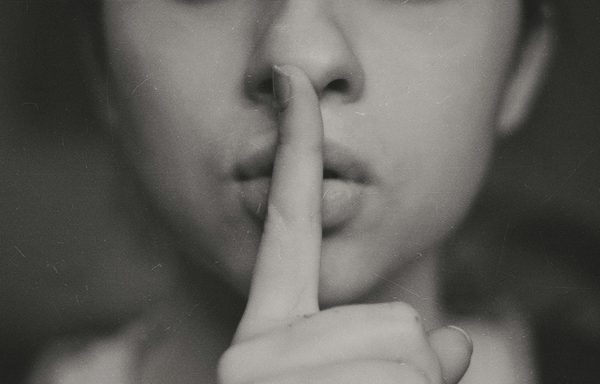“Is Jane Eyre Really A Feminist Novel?”

Adelaide Zheng won a Silver Key for this critical essay.
Simone de Beauvoir once wrote in her famous work The Second Sex that “[o]ne is not born, but rather becomes, a woman.” Similarly, in the literature world, the language and structure of texts “reproduce gender inequalities” by alienating female characters and making them become what the stereotype describes (Moon). However, in Jane Eyre by Charlotte Brontë, the center of the story is not a male but an orphaned girl who undergoes many struggles to finally become an independent woman. Jane Eyre is treated as an inferior at Aunt Reed’s house and witnesses her own best friend’s death at the Lowood School; she falls in love with Edward Rochester when serving as a governess for his supposed daughter Adèle, then escapes the house as she discovers that he has a living, crazy wife. Eventually, she comes back to Edward after becoming an heiress to a fortune. Many readers of Jane Eyre consider the protagonist a feminist because of her exemplary individual progress. Indeed, Jane Eyre exhibits outstanding personal qualities in this novel, which can be interpreted as feminist characteristics; however, I argue that Jane’s personal growth does not necessarily imply feminism because her mind is still limited to an inferior category, which is why this novel does not qualify as a feminist novel.
Charlotte Brontë distinguishes Jane Eyre from the rest of women of her time, bestowing her with bravery, persistence and autonomy, suggesting Brontë’s admiration of those qualities that are often suppressed in women. When Brontë first published the novel in 1847, she used an ambiguous pseudonym, Currer Bell, to avoid prejudice against female authors. Interestingly, Jane Eyre is presented as a non-compromising character whose attitude toward authority may reflect what Brontë thought of herself but did not dare to show. Jane says “no” when Rocheser asks her if he is handsome, refuses to pay respect to people based on their social status, and insists that no one has “the right to command [her]” (Brontë 148). Her sharp personality is best shown through her dialogue with Rochester as she famously claims, “[d]o you think, because I am poor, obscure, plain, and little, I am soulless and heartless? You think wrong! —I have as much soul as you—and full as much heart!” (Brontë 281). Jane Eyre possesses vital qualities and an equally full soul that readers are not used to seeing in a female character, especially a “poor, obscure, plain, and little” one. The stark contrast between Jane’s physical image and her inner qualities suggests Brontë’s own belief in women’s journey to independence.
However, just as Brontë chose not to publish the novel under her name at the beginning, Jane Eyre’s progressive actions are, in fact, limited to a weaker, feminine category, suggesting that this novel does not intend to achieve a feminist agenda. Throughout the novel, Jane Eyre makes very little comment on the problems of gender inequality, nor does she show the urge to change women’s roles in her society. For example, she does not show anger toward the fact that her cousin John Reed spends all the money gambling while the Reed sisters can only stay at home; she feels “less…justified in judging and blaming” the possible loveless marriage between Mr. Rochester and Lady Ingram (Brontë 207); she also implies that women’s beauty has equal weight with men’s virtues by telling Rochester that “if God had gifted me with some beauty and much wealth, I should have made it as hard for you to leave me, as it is now for me to leave you” (Brontë 281). Those sporadic details reflect Bronte’s fixed underlying assumptions about women’s weaker roles in society. I believe that Brontë did not intend to write a feminist novel—if her own protagonist is quiet when it comes to fighting gender stereotypes, how would this novel be classified as a feminist novel?
Another disturbing aspect of Jane Eyre—which makes it less qualified as a feminist novel—is the fact that the power balance between Jane Eyre and Edward Rochester is only achieved when Jane inherits money and Edward becomes blind. Jane does not have a choice other than to escape from Thornfield Hall when she discovers Edward’s crazy wife, Bertha. Interestingly, this description of Jane’s escape fits into what Sandra Gilbert, an American literary critic, describes as being “not uncommon for heroines of nineteenth-century literature by women” (Murfin 466). When she is imprisoned in the little red room at Aunt Reed’s house, Jane has also momentarily succumbed to madness, which is a form of escape from the realistic world that male heroes are disapproved of. A male hero, such as Odysseus, is almost never portrayed as someone who would become mad or escape from his dilemmas; instead, madness and escape are synonyms for cowardness and incompetence in a man’s world. Thus, it is not surprising that Jane only achieves power balance with Edward when she inherits money and Edward becomes blind. This particular plot in the novel, to some extent, affirms that women are born to be weaker than men, and that weakness indicates inferiority.
Jane Eyre’s characteristics, such as bravery, persistence and autonomy, do not automatically make her a feminist because her thinking is still limited to a feminine category; therefore, Jane Eyre is not qualified to be a feminist novel. Indeed, Jane’s outstanding personal qualities make her one of the most powerful female fictional characters in the world of literature; however, a closer look at the book’s details suggests that Jane is still not progressive enough to revolutionize her thinking about broader concepts like gender inequality. That said, the Brontë sisters’ contribution to the literary world, especially in advancing women authors’ status, should not be discredited. As we are judging Jane Eyre from a modern standard, we can consider this novel as not progressive enough; however, taken into the context of nineteenth century England, Charlotte Brontë shows courage in creating her protagonist, Jane Eyre, to evolve from a helpless, little girl to an independent, brave young woman. Sadly, three hundred years later, the underlying assumptions about women’s roles in society have changed little. Even though we consider ourselves a generation of progress, who, among us, obtains the courage and persistence, like Jane Eyre does, to fight for true gender equality?
Works Cited
Brontë, Charlotte. Jane Eyre. Sterling Publishing Co, 2017.
Moon, Brian. “Feminist Criticism.” Literary Terms, PDF ed. Excerpt originally published in Literary Terms, .
Murfin, Ross C. “Feminist Criticism and Jane Eyre.” Feminism Criticism: A Selected Bibliography, PDF ed. Originally published in Feminist Criticism: A Selected Bibliography.











